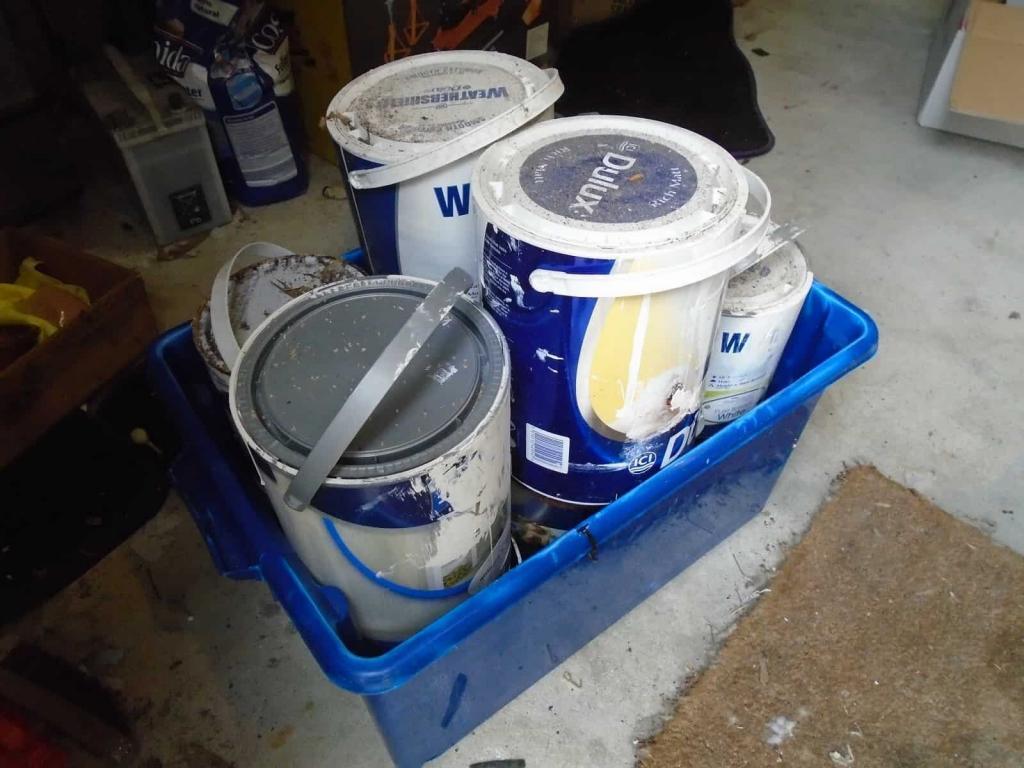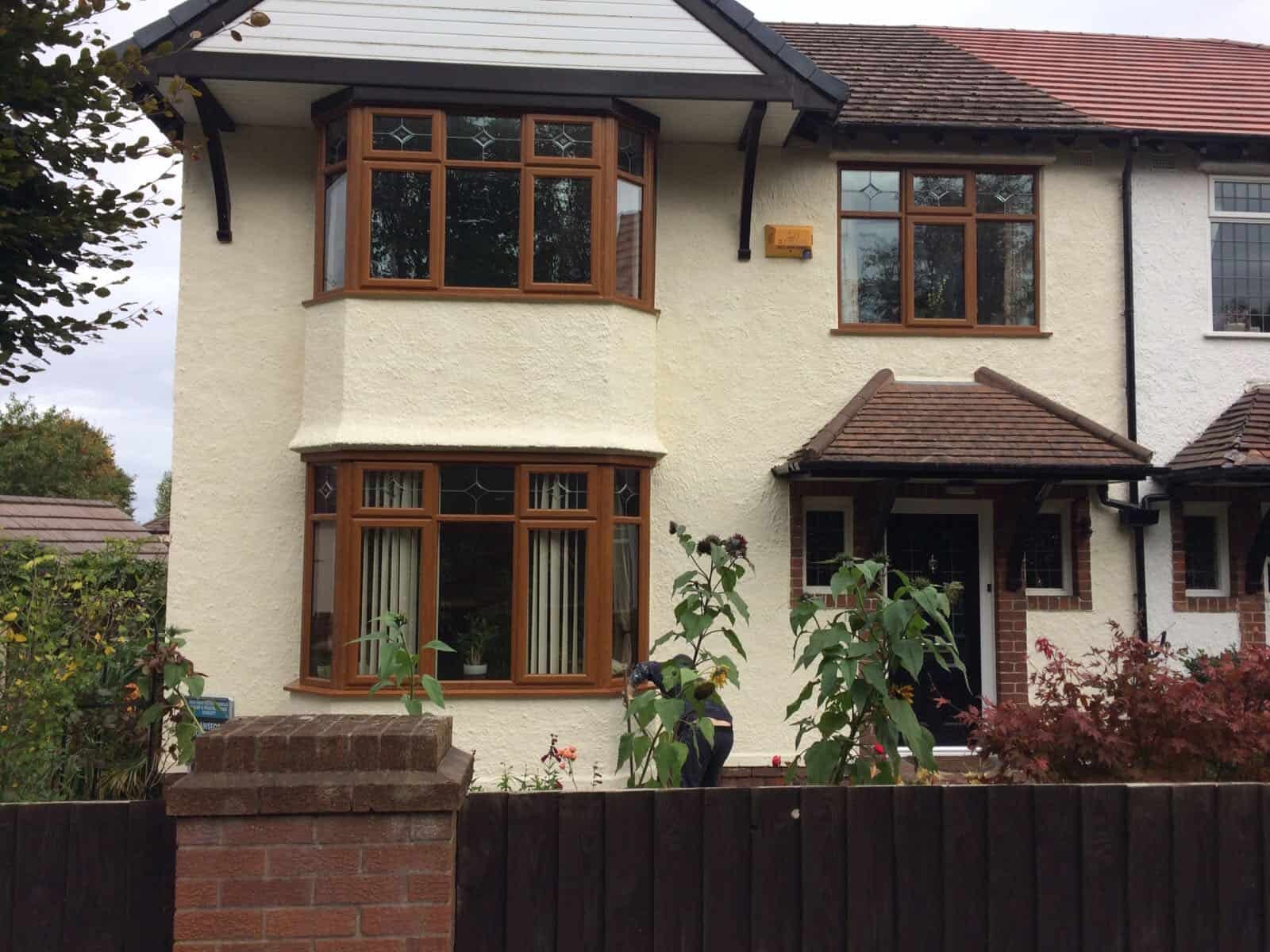Using masonry paint on the outside of your house is an easy and inexpensive way to beautify your home.
It can be applied to your exterior walls, doors, windows and more. It’s also great for covering up old paint and stains, and can be painted over again if needed, in fact it generally requires frequent repainting as masonry paint does not in truth last very long.
The best part is that it’s durable and easy to clean and cheap. However, there are some disadvantages to using it, and you’ll want to know them before you decide to use it.
Water-based stain: When to use it and where to use it effectively
Whether you’re choosing a stain for a wood deck, a fence, or the interior of your home, you need to understand the difference between water-based stains and oil-based stains. This can help you make the best choice.
A water-based stain is made of a binder and dye or pigment. These are then cured with a solvent. The end result is a stain that provides good protection against the elements. It is also much more environmentally friendly than an oil-based stain.
In fact, the benefits of using a water-based stain are numerous. They include flexibility, ease of use, and less risk of mould and mildew build-up. In addition, a water-based stain is more resistant to UV light.
The most important benefit of using a water-based stain is that it’s safer to use than an oil-based product. An oil-based stain may contain petroleum distillates.

These volatile organic compounds (VOCs) can cause dizziness and even respiratory issues. In comparison, a water-based stain doesn’t contain any VOCs.
A water-based stain also has the advantage of being non-flammable. However, it is still a good idea to apply a protective finish to the stain after it has been applied. In humid environments, it’s especially important to protect the stained area. This will ensure that the stain is stickier.
Besides, a water-based stain is much easier to clean than an oil-based one. An oil-based stain is a bit harder to clean up, since it will trap moisture when you’re applying it. An oil-based stain can also be a bit hard to find the right colour.
There are a lot of different types of stains available in the market.
To choose the right one, you should compare the different advantages and disadvantages of each. For instance, a natural stain will provide the most UV protection, but it isn’t as durable as an opaque stain.
Another advantage of a water-based stain is that the colour isn’t permanently altered, unlike an oil-based stain. For this reason, it is a good option for the home do-it-yourselfer.
Regardless of the type of stain you choose, the most important factor is that you get the job done in a timely manner. You should apply a water-based stain at least once a year. This will extend the life of your stain.
Oil-based paint. When should this be used?
Whether you are looking for a new paint job or you are renovating a building, it is important to understand the difference between water-based masonry paint and oil-based masonry paint. Both paints offer excellent performance, but there are some key differences.
The first is durability. The more durable the paint, the longer it will last.
It’s also important to consider the colour.
Most water-based paints are matte in appearance, while oil-based paints are glossier. Choosing a colour that will blend with the rest of your property can help to keep your home looking cohesive.
Oil-based masonry paints are generally a better choice for exterior projects.

The colours are less likely to fade and break down, and they’re easier to apply. They’re also more resistant to mould and mildew. The high odour and volatile organic compounds (VOCs) that are released by oil-based paints can be harmful to the environment.
Oil-based paints also take longer to dry. They need at least 24 hours to fully cure. This means that you’ll need to wait a couple of days between coats.
Oil-based paints contain higher VOC levels than water-based paints, and can be harmful to your health.
Aside from being damaging to the environment, high VOC levels can also cause smog.
Some people think that water-based paints are less durable than oil-based paints, but this isn’t quite true. While they have a lower gloss finish, the polymer chain layer that is bonded to the paint is durable and resists degeneration caused by the air.
The main disadvantage of oil-based paints is that they’re more flammable. In addition, the fumes can be unpleasant to breathe. They can also cause headaches and light-headedness.
Although oil-based masonry paint is still considered the best option for most projects, it’s not the only choice. There are many latex paints that offer superior performance on outdoor surfaces.
You can also find some healthy, low-VOC options. Ultimately, your decision will come down to your individual preferences. It’s important to choose a paint that will meet your needs now and in the future.
Elastomeric paint
Choosing the right elastomeric paint for masonry is a critical factor in protecting your home or building from the elements. Using the wrong type of paint may cause cracking, rot, or even water damage. Fortunately, there are several things you can do to make sure your paint is the right choice.
First, you need to decide on the type of masonry you want to protect. This can be either concrete, stucco, or brick. It is also important to consider the surface’s texture and condition. If your surface is chalky or glazed, you will need to use a sealer before applying elastomeric.
If you plan on painting your masonry, it is best to hire an experienced professional.

You can ask a painter for advice or look at the manufacturer’s website to find recommendations. It is also helpful to know which surfaces will work best for elastomeric.
Before painting your masonry, make sure the surface is completely dry and free from dust.
You can use a brush to apply the elastomeric to small areas, but a sprayer or air-spraying method is best for larger areas.
Next, you will need to decide how thick you want your elastomeric paint to be.
It can be up to ten times thicker than conventional paint. It is recommended to apply it in two thick coats. This ensures that the paint film will be evenly distributed throughout your masonry.
After the elastomeric paint has dried, you can start sealing large cracks and repairing damaged masonry.
In the case of a house with walls in poor condition, it is best to use elastomeric wall coatings to bridge existing cracks. These coatings are made of thick films that expand and contract as temperatures change.

When the weather returns to normal, they contract and return to their original shape. This allows your masonry to retain its beauty and structural integrity.
Elastomeric wall coatings are best left to professionals to apply as they require special equipment to apply.
Finally, you should take care to apply the elastomeric paint according to the manufacturer’s instructions.
Unless you are experienced in this process, you can end up with a paint job that doesn’t look like it was intended.
In addition to providing an excellent waterproof system, elastomeric paint can also help you save money. It can last for many years and can even outperform a top quality exterior acrylic paint.
Emulsion paint
Emulsion paint is a type of paint that is made up of solvent and binder. It is used on various types of surfaces, such as wood, metal and plastic. These paints have high durability and good resistance to humidity. They are very easy to apply. They can also be used without any pre-treatment.
Some of the major brands of emulsion paint include Asian paints, Berger Paints, Shalimar paints, Dulux, etc. They are available in different shades and finishes, including gloss, satin and matte. Some of the specialized kinds of emulsion paints are used for ceilings, woodwork and other interior surfaces.
Emulsion paint however is best used internally.
Oil-based paints are not as durable as water-based emulsion paints. These paints may get stained easily and are also susceptible to cracks. You should use them with care when working on wet or dusty surfaces. You can also make your emulsion paint waterproof by brushing on a sealer.
In addition, emulsion paint is non-toxic. It is also easy to clean. These paints have a hard, glossy surface that does not change in temperature. You can wipe them off with water. Moreover, they are resistant to mildew. They are also durable and do not fade over time. They can be applied to both indoor and outdoor surfaces but indoor is preferred.

It also does not peel off when wet. It can be used on both new and old plastered surfaces. You can apply the paint with a roller or a brush.
When applying emulsion paint on brick, you should prepare the surface although to get a good finish it is harder than it looks.
For smoother surfaces, you can sand the brick. Then, you should apply a coat of primer. You can use a wire brush to remove loose particles. Then, you can use a putty knife or a dry cloth to smooth the wall.
After the basecoat is finished, you can choose your overcoat. Choosing the right kind of overcoat is important. If you are not sure of the type of overcoat to choose, you can ask a professional.
Exterior wall coatings

Ah now you’re talking.
We have specialised in applying exterior wall coatings since 1986, on a host of different types of houses up and down the country.
The major benefit of choosing this system is it’s longevity, they should last upwards of 20 years without having to repaint the wall.
This obviously is a premium system and costs more in the short term to buy, but saves money over the long term in no having to have it repainted, plus that means not having the hassle of a team of workmen around your house every year.
Not only that, wall coatings stop damp and the growth of mould.
We also offer an energy saving wall coating, which is approved by the Energy Saving Trust to lower your home heating bills.
If you want to discuss having a wall coating on your home, give us a call on 0800 970 4928 or email us.

